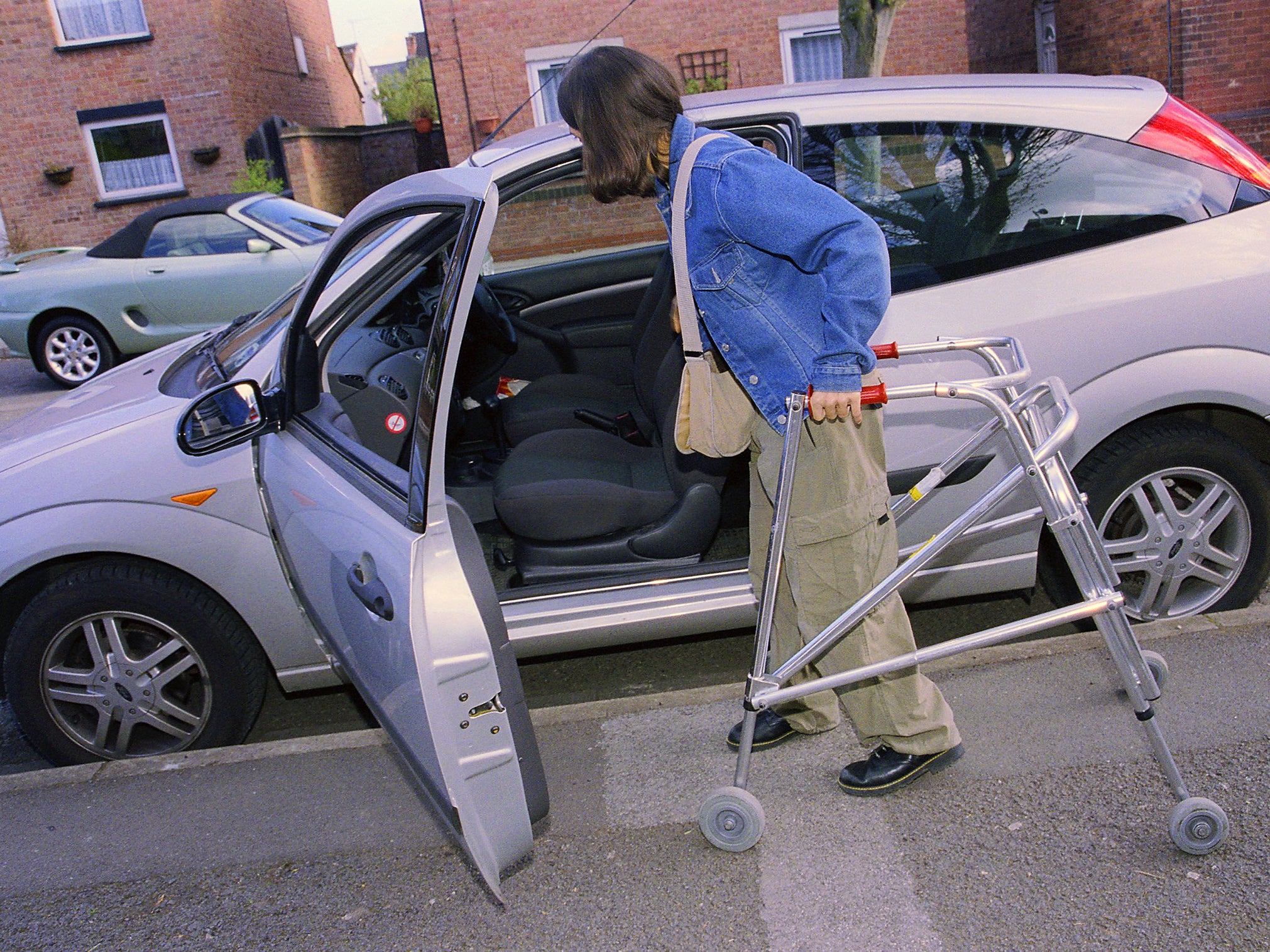Disability benefit cuts will cost taxpayers more than they will save, charity warns
Cutting support for multiple sclerosis sufferers will cost additional £10m

Government cuts to disability benefit for people with multiple sclerosis (MS) will end up costing more than it will save, a leading charity has warned.
Research by the MS Society suggests cuts to Personal Independence Payments (PIP) planned over the next three years could end up costing the taxpayer almost £10m in increased spending in other areas.
It is estimated that around 16,600 MS sufferers will lose out on PIP support because of the government’s 20-metre rule – which bans anyone who can “safely” walk 20 metres from receiving the higher rate of mobility support.
Without the higher rate, people are stripped of their Motability vehicles and often left trapped in their homes and unable to work, causing their health to deteriorate, the charity said.
It comes after The Independent revealed that tens of thousands of disabled people were being left out of pocket for increasing lengths of time while they wait for wrongly refused PIP claims to be overturned.
The MS Society report estimates that between 2020 and 2023, the government will lose £57.4m in tax revenue from people with MS and their carers leaving work or reducing their hours.
The charity claims the government will also spend an additional £22.3m on the NHS, £11.4m in extra benefit payments and £1.7m processing appeals and reassessments as a result of the cuts.
The total extra spend of £92.8m outweighs the £83.3m of savings created by cutting PIP benefits.
MS sufferer Emma Williams, 51, had been receiving the highest Disability Living Allowance (DLA) rates of both mobility and daily living, but was downgraded to the standard rates for both when she was reassessed for PIP in 2016.
Ms Williams, who lives in Kent, said: “A woman came to my house for the assessment and ignored a lot of what I told her. I explained that my mum, who is my full-time carer, cooks for me and washes my hair.
“But my report directly contradicted this and said I could cook meals for myself and don’t need help with washing. She also estimated how far I can walk after I pointed to a spot in my back garden. She said it was 50 metres, but I know for a fact it was less than that.”
The 51-year-old said she has had to cut down on food and has had to rely on her 75-year-old mother a lot more since her benefit was cut, even borrowing money that had been put away for her funeral to buy a mobility scooter.

Genevieve Edwards, director of external affairs at the MS Society, accused the government of “squandering millions from the public purse while derailing lives”.
“We’ve long known about the enormous harm caused when PIP takes vital support away from people with MS,” she said.
“Our new report shows for the first time that this harm is rebounding on the government: the knock-on costs from people losing support are greater than the original cuts.
“Scrapping this senseless rule would stop this unnecessary waste and help people with MS finally get the support they need.”
A DWP spokesperson said people who can walk more than 20 metres could still receive the enhanced rate of the mobility component if they could not do so safely, to an acceptable standard, repeatedly or in a reasonable time period.
“We’re spending more than ever supporting disabled people and those with health conditions,” the spokesperson added.
“Over two thirds of MS claimants receive the same or a higher award after DLA to PIP reassessment. We work closely with organisations such as the MS Society to ensure that PIP is working well, and people with the most severe, life-long conditions no longer have to attend regular reviews for PIP.
Join our commenting forum
Join thought-provoking conversations, follow other Independent readers and see their replies
Comments
Bookmark popover
Removed from bookmarks